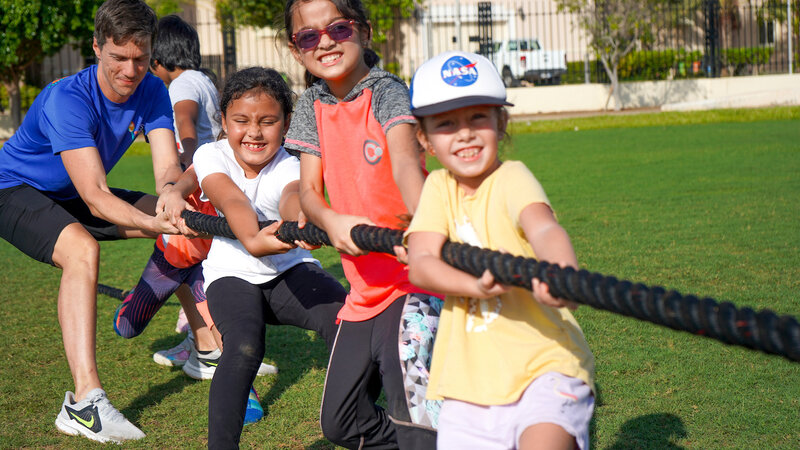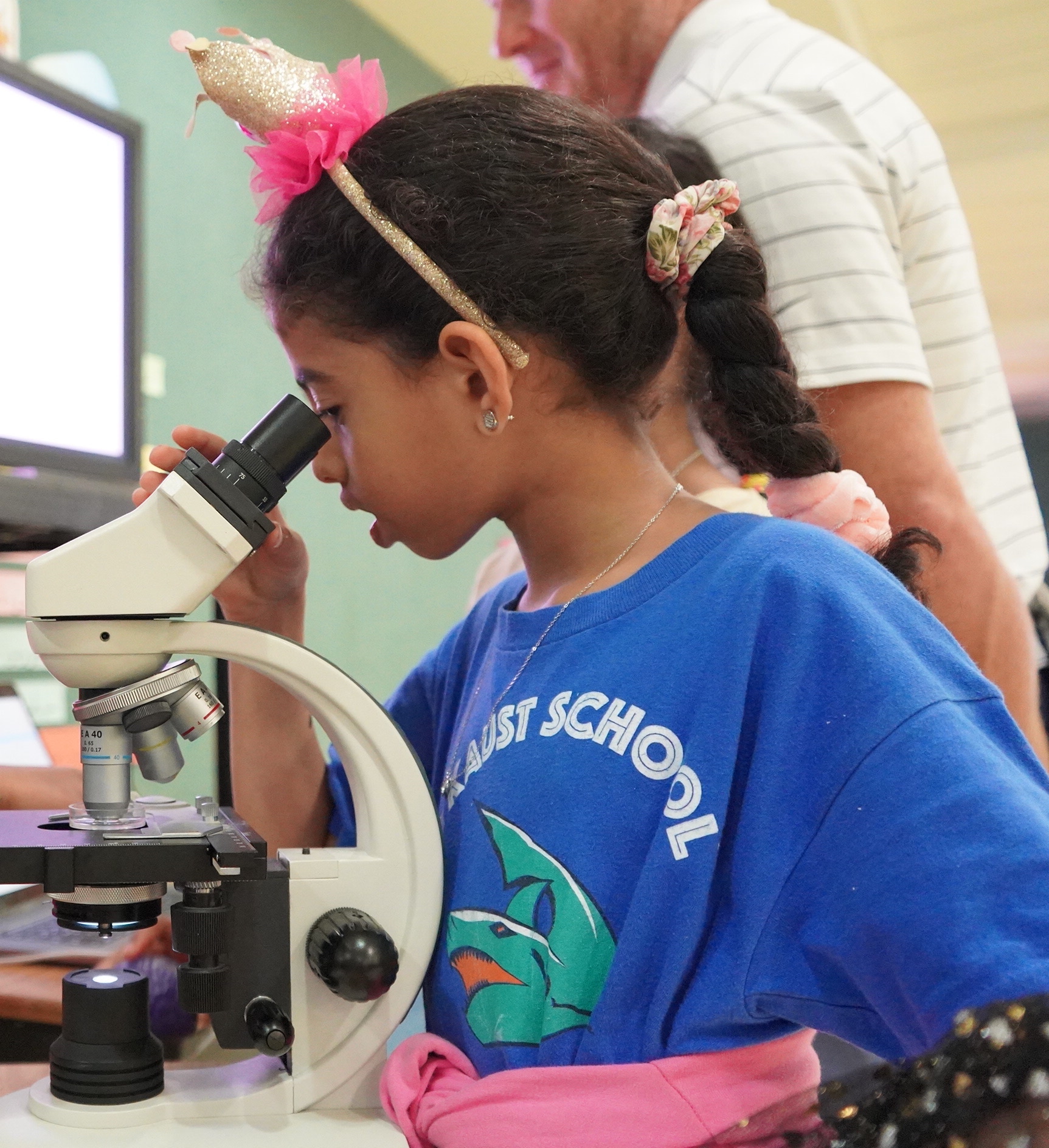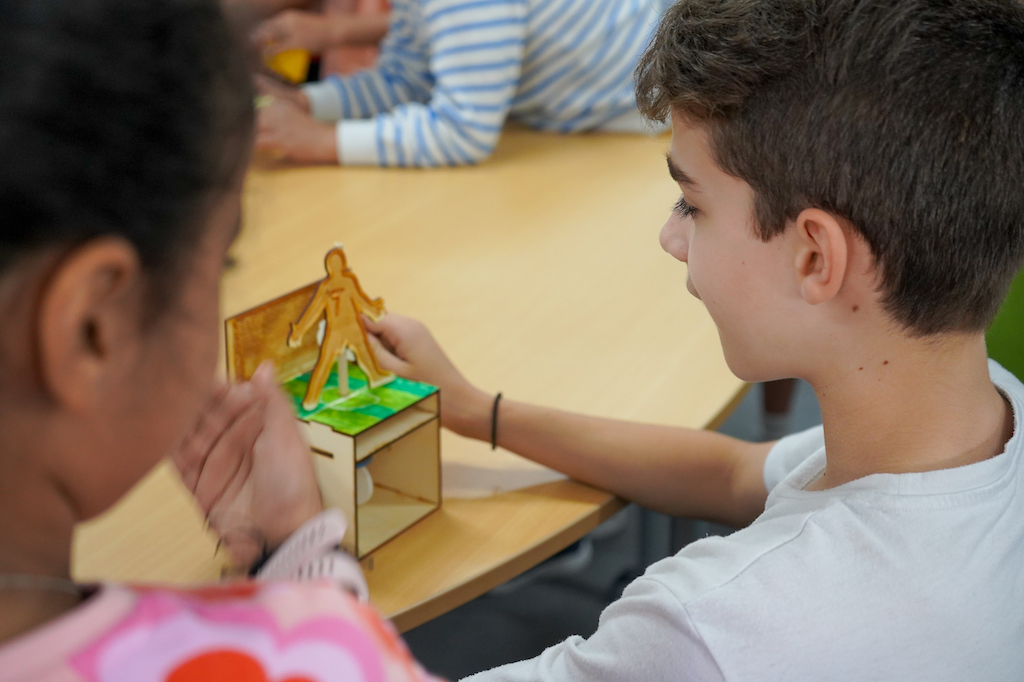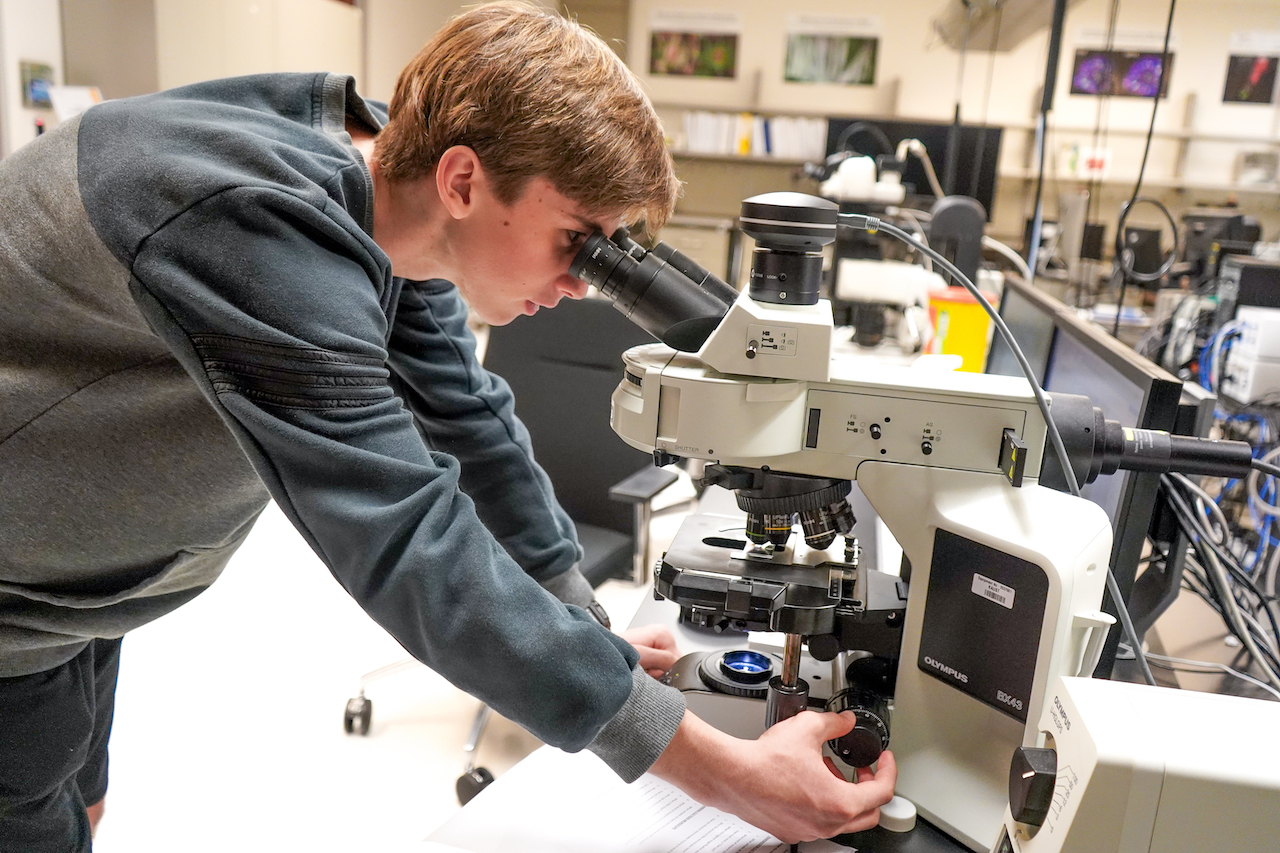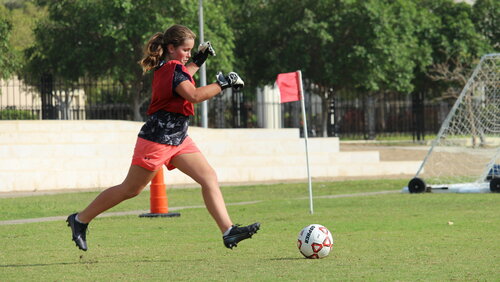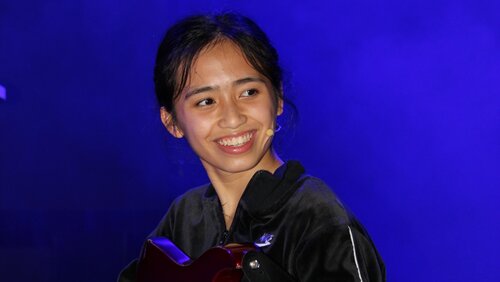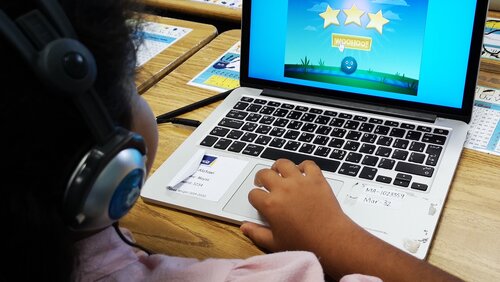True to our mission, we aim to provide an exceptional education that empowers our students to be resourceful and responsible global citizens. We focus on maintaining high academic standards and the development of the whole child, and nurture their sense of belonging and well-being.
Our Curriculum
Our Curriculum

All TKS students gain a US High School Diploma when they successfully complete their studies. Most students also choose to participate in the International Baccalaureate Diploma Program (IBDP), alongside of the US diploma.

The International Baccalaureate® (IB) curriculum is a well respected and widely followed academic program in international schools. It spans our youngest students through to our Grade 12s.
Offering both the US and IB curriculum meets the needs of our diverse and internationally-minded community.
Our Schools
Our Schools
Collaborating with KAUST
Our partnership with the university continues to flourish, providing our students with unique real-world opportunities and experiences for our faculty and students that are not available in other schools around the world.
Our students benefit from the state-of-the-art facilities and resources of the University, interaction with world-renowned academic professors and leaders in their respective fields, as well as access to engaging University events such as the Winter Enrichment Program (WEP) and Science Fairs.
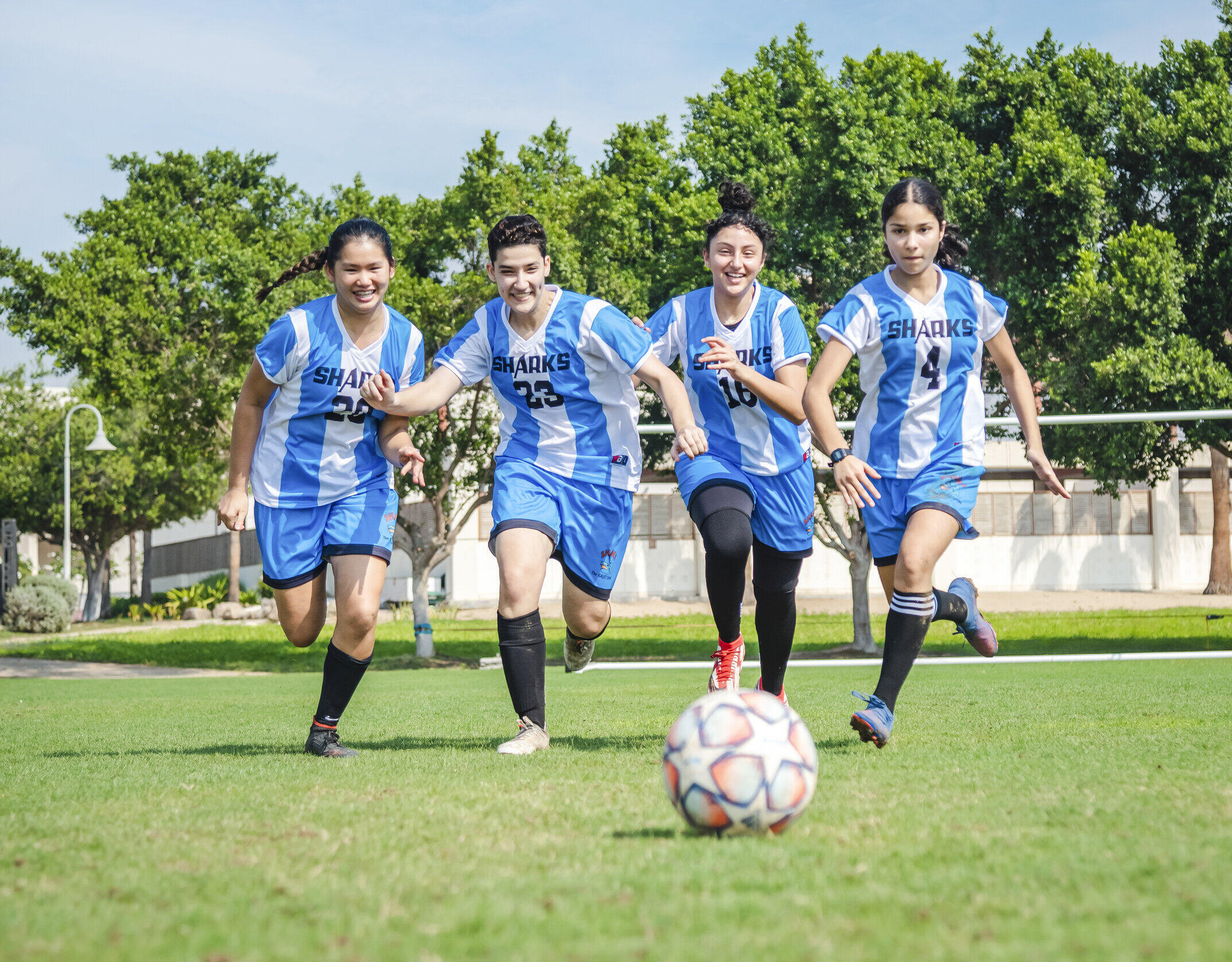
Our students come from a range of nationalities, cultures and experiences. It’s what makes us who we are! At TKS, we’re here to help every child reach their potential. We know that no child is the same. They may need some additional language or developmental support. We also have programs for talented students who may need more enrichment. Our expert team is here to help your child reach their goals.
We Stand Out
We’re all different and reach our potential in different ways. Inside and outside the classroom. That’s why at TKS we complement our rigorous International Baccalaureate curriculum with a wide range of classroom-based and co-curricular activities.
Tech @ TKS
At TKS, we seamlessly integrate technology and information literacy to enhance learning experiences for our young people. It empowers them to create, collaborate and connect through the responsible use of print and digital resources.
We have invested in the latest technology to enhance our teaching and learning, including tablets, iPads, Chromebooks, and interactive panels for classroom use across the curriculum. We also have a specialized computer suite available for all our students.
We provide many in-school resources that introduce our young learners to responsible digital and technical play such as iPads, microscopes and coding toys.

Computer science week
As part of Computer Science Education Week, TKS Kindergarten collaborated with University students and staff from the Computational, Electrical, Mathematical Science & Engineering (CEMSE)...

Video & Music Production Design
Students in the High School Media & Communications: Video production class have the opportunity to develop their pre-production, production, post-production/editing, and storytelling design...

CAM in Motion
During this event, TKS creates CAM (Computer Aided Manufacturing) toys by using Adobe Illustrator, laser cutting, and hand-building to create the parts like the box, cam parts (crank, follower,...

Common sense media digital citizenship
In addition to this, TKS utilizes the Common Sense Media Digital Citizenship curriculum to support students to make smart choices online and take ownership of their digital lives. Part of this...
International Learning Opportunities
At TKS, we strive to provide the best experiential learning opportunities for all of our students. This includes a number of exciting international learning opportunities.
Model United Nations
Model United Nations is an academic simulation of the United Nations. Students play the role of delegates from different countries and attempt to solve real-world issues with the policies and perspectives of their assigned country. For example, a student may be assigned the United Kingdom and will have to solve global topics such as nuclear non-proliferation or climate change from the policies and perspectives of the United Kingdom.
Students can attend Model United Nations conferences around the world. These conferences are organized by universities, high schools, non-profit organizations, and other educational groups. Conferences are offered for different academic levels: college and university, high school, middle school, and grade school.
Our students learn and use skills including public speaking, debate, negotiation, critical thinking, research, teamwork, leadership, and much more.
We’re excited to participate in upcoming events including:
- TKS Model United Nations Conference at KAUST (October)
- Yale Model Government Europe (YMGE) – Lisbon, Portugal
- LEBMUN Conference – Beirut, Lebanon
- SAIKAC Model United Nations – both Middle School and High School
Out of Kingdom
The trips we offer in our Out of Kingdom (OOK) trips program fall into one of two categories, curriculum support and personal growth.
Curriculum support trips are about seeing and experiencing the places and topics that our students learn about in the classroom. This combines some fun activities specific to the location.
Personal growth trips are about pushing our students’ personal boundaries, either physically and mentally. It may be asking students to contribute in some way to the local community so they appreciate issues from a wider perspective.
Duke of Edinburgh Award
Twelve intrepid TKS students completed their Qualifying Adventurous Journey as part of KAUST’s inaugural Duke of Edinburgh International Award Program. The students, Grades 9 through 11, planned their own two-day, one-night excursion into the desert using topographical maps and building upon skills and experiences gained during earlier practice expeditions. This section of the Award seeks to provide participants with a unique, challenging, and memorable experience. Completed in small teams, students must demonstrate determination, physical effort, perseverance, and cooperation to complete their self-sufficient journey. The Adventurous Journey is the fourth pillar of the successful completion of a DofE Bronze Award.
TKS Online Libraries
Our parents don’t need to be on campus to access our libraries. With access to an exceptional selection of online resources, your child has everything they need, on demand. Whenever they want. And wherever in the world they are.
Learning FAQ’s
Learning FAQ’s
TKS is an independent not-for-profit IB World School that offers the Primary Years Program, Middle Years Program, and Diploma Program of the International Baccalaureate. More info here.
Graduates earn an American High School Diploma, accredited by MSA (Middle States Association). TKS offers an International Baccalaureate (IB) Diploma in addition to the TKS Graduation Diploma, for qualified candidates.
TKS accepts students with specific learning needs on an individual basis. TKS does not offer admission to students with learning support needs that are beyond mild to moderate. If a child has specific learning needs, please follow the steps outlined in the application form.
TKS faculty are certified to teach the IB curriculum and have many years of international teaching experience.
TKS enjoys the benefit of personalized classroom instruction through small classroom sizes. Grades K1 – G2 have a homeroom teacher plus an instructional assistant for each class. Grades 3-5 share instructional assistants. Middle and High School classes enjoy additional science, design, art, and physical and health education instructional assistants.
Kindergarten maintains a classroom size of up to 17, the Elementary School maintains a maximum of 20 students per class, and the Secondary School a maximum of 22 students.
Arabic is offered as part of the World Language Program at TKS at all levels. More info here.
The TKS school year runs from August to June in two semesters, with the following breaks: one week for Eid al-Fitr, one week fr Eid al-Adha, Saudi National Day, one week for fall break in October, a winter break in late December to early January, and a one week for spring break, which is usually in March. View the full TKS Academic calendar here.
TKS recognizes that students are learning through language whilst simultaneously learning a language, and learning about language. Thus, every teacher at TKS is a language teacher as language is a meaning-making activity. TKS aims to support translanguaging in the classroom; the use of a child’s full linguistic resource to make meaning. Children are encouraged to continue to develop their home language literacies; this supports the development of English language skills and affirms identity.
Read more in Student Support Services.

